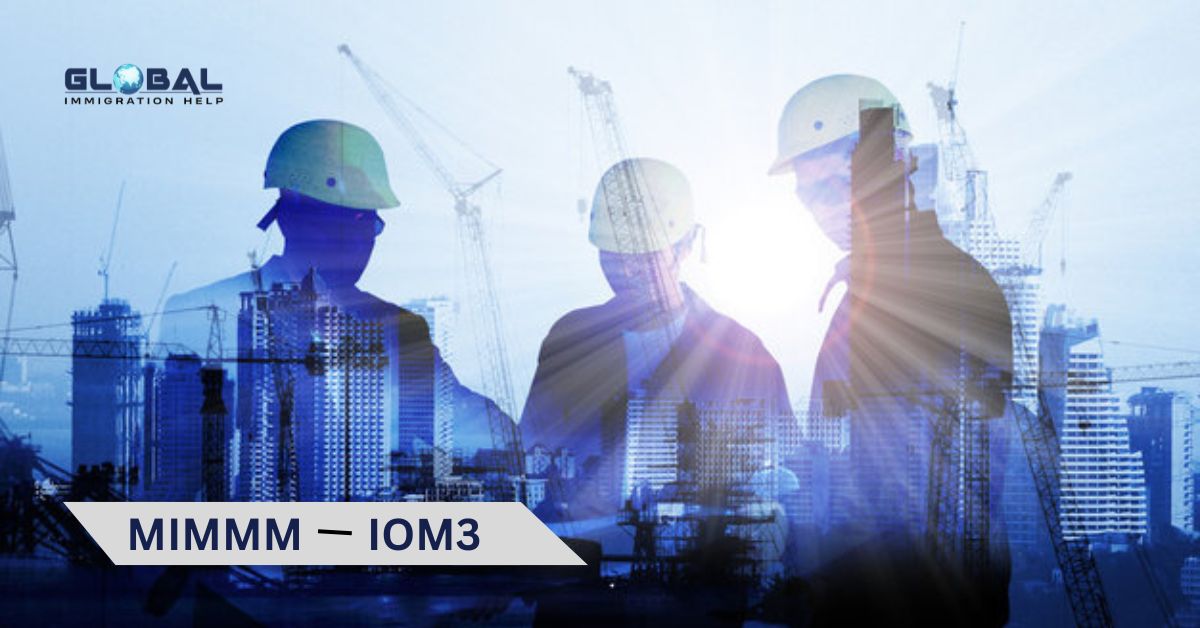The Member status (MIMMM) allows an individual’s professional experience, knowledge, and understanding of a technical discipline to be recognized. The technical discipline is associated with the Institute of Materials, Minerals & Mining.
Members are generally expected to use independent judgment in practical experience and the application of scientific, engineering, or environmental principles. They will be innovative in technical matters related to materials and natural resources in one or more of the following:
- Extraction,
- Exploration,
- Forming,
- Processing,
- Selection,
- Development,
- Application,
- Manufacturing,
- Research,
- Reuse,
- Repurposing and
- Recycling
Eligibility criteria:
The following are the eligibility criteria, you need to fulfill for the status of MIMMM:
- They must possess the minimum of a Bachelor’s degree be it a BSc, BEng, BSc(Eng), BTech, and so on. Or, they must hold an equivalent RQF Level 6/SCQF Level 9/10 qualification. This qualification must be in a related engineering, science, technology, or environmental subject.
- The applicant needs to have a minimum of four years of related work experience. This work experience can include time spent in the completion of an EngD or Ph.D.
Those without a bachelor’s degree or equivalent but with significant work experience may be considered for the Member grade. The authority may consider them eligible on the basis of their work-based learning. You should contact the authority if you are planning to attain membership through this route.
Otherwise, those not fulfilling these criteria may consider applying for the AIMMM (Associate Grade).
Benefits of being a Member:
Besides the general benefit coming with other grades, a Member will get the following benefits too:
- They can use the post-nominal letters ‘MIMMM’.
- The Member can have free entry to the Institute’s Introduction to Professional Registration workshop.
- They can apply for Interim Professional Registration if looking to qualify in due course to apply for recognition. The recognition can be as a Chartered Engineer (CEng) or Incorporated Engineer (IEng) with the Engineering Council.
- Members can have free entry to Professional Registration Workshops.
- They will have a Mentor to support their application for professional registration.
- The grade holder can have entry to the Institute’s Continuing Professional Development (CPD) workshop.
- They will have free entry to the Institute’s Fellowship workshop.
- The MIMMM grade holder can apply for a Construction Skills Certification Scheme (CSCS) Professionally Qualified Person (PQP) card. For this, they need to pass the relevant CITB Health and Safety and Environment Test or an approved alternative.
- Members can apply for recognition with Minerals Reporting accreditation under the terms of the CRIRSCO template Codes of Reporting. Moreover, they can be added to the Institute’s register. Through this register, practitioner credential due diligence checks can be made by the public.
Minerals reporting:
The Institute of Materials, Minerals & Mining maintains a Register of Mineral Resources and Reserves Reporting (MRRR) practitioners. If you want to have recognition from the Institute for the purposes of Minerals Reporting, you should contact the Membership team. The process for recognition requires you to go through an interview.
The Code of Professional Conduct:
To enable members to behave appropriately in performing their professional duties, the IOM3 must provide a Code of Professional Conduct. This Code of Professional Conduct is for both its members and the general public. The Code applies to all members, irrespective of their grade, their professional role, or the country where they work. The Code contains, first of all, the specific rules of conduct that Members must follow. The rules cover, in plain language, those things that a Member must do. Where appropriate, the Institute has given ‘Good Practice Advice’ through a series of ‘Guidance Notes’. The Institute has done so to help Members to interpret and apply the rules, and fulfill their professional obligations.
The Guidance Notes cover the main areas of professional activity in which members are likely to take part. These Notes are published by the Engineering Council and the Institute. The Institute endorses these as being applicable to every practitioner within its membership. It doesn’t matter whether they are an engineer or not. These include a Guide on Whistleblowing and another on Equality, Inclusion, and Diversity. One must read all these things with the Code of Professional Conduct. You can download the most recent versions of these guides at the bottom of the official page.
Many, probably most, members will pass through their professional lives without thinking that their actions harmonize with the Code.


